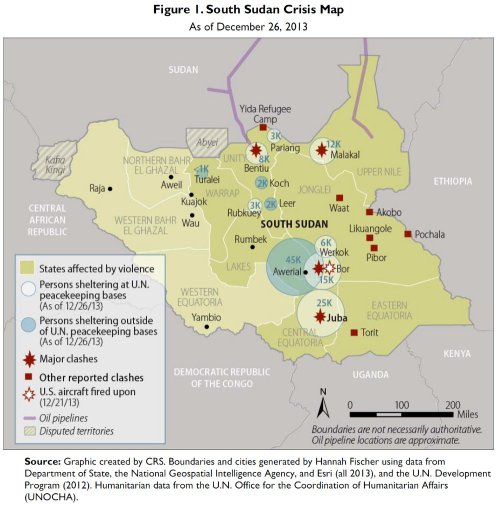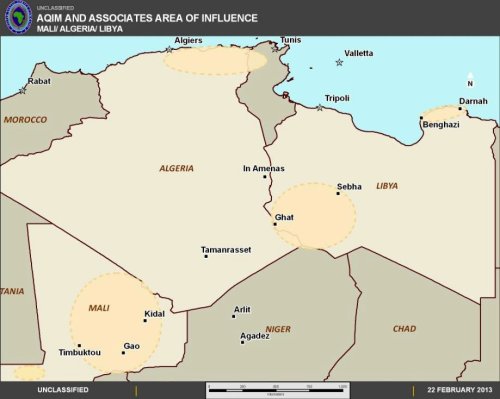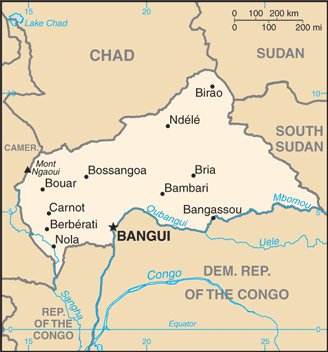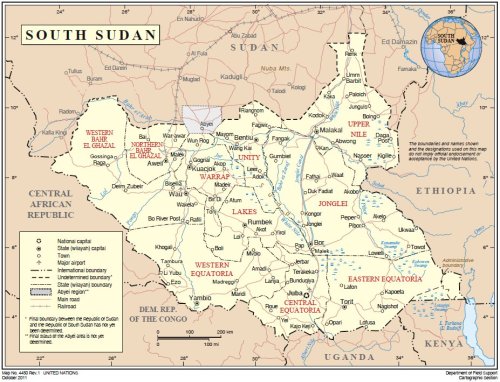Yesterday, South Sudan’s President Salva Kiir and Sudan’s President Omar al-Bashir held talks in South Sudan’s capital, Juba. Though Sudanese authorities did not initially provide any detailed information about what topics might be discussed, it quickly became apparent that at least one of the major focuses was the matter of oil. Most notably, the two reportedly broached the subject of establishing a joint force to secure oil fields threatened by the current crisis. Nuer rebels have claimed control of many towns in oil producing states in South Sudan since an reported coup attempt in December resulting in a surge of violence. Sudan also called for a ceasefire and for talks to solve the current impasse, adding that it had no intention of support rebel forces against the government.

Figure 1, South Sudan Crisis Map, as of December 26, 2013, from Congressional Research Service Report R43344, dated December 27th, 2013
Sudan and South Sudan have had a rocky relationship since the 2005 Comprehensive Peace Agreement and the country’s declaration of independence in 2011, so this meeting between the two leaders and the discussion of Sudanese troops deploying to the country are significant on their own. One of the major points of contention between the two countries has been the matter of oil, and especially the disputed oil-rich Abyei region. Efforts continue to develop a means of shipping the oil south, but currently, the only method by which South Sudan can rapidly transport oil out of the country is through pipelines into Sudan. Fighting that disrupted the flow of oil in 2011 and 2012 eventually led to an agreement between the two nations. The agreement focused on getting the oil fields back up and running while leaving the border issue unresolved. The dispute over control of Abyei remains unresolved, but it is clear that Sudan is not interested in another disruption. Neither are the Chinese.
The meeting between Presidents Kiir and al-Bashir comes as talks organized by the Intergovernmental Authority on Development (IGAD) over a potential ceasefire continue in the Ethopian capital Addis Ababa and fighting across much of South Sudan rages on. The United Nations has been rushing to bolster the UN Mission in the Republic of South Sudan (UNMISS), which is currently sheltering tens of thousands from the violence and attempting to assist civilians in need. To cope with the situation UN is seeking to double the size of UNMISS to fourteen thousand personnel and has been shifting resources from the mission in neighboring Democratic Republic of Congo to help. The potential for a humanitarian disaster in the country is great and the actual number of causalities already resulting from the conflict is uncertain.


